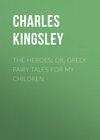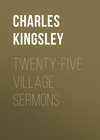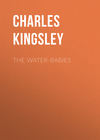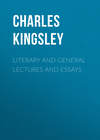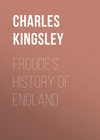Czytaj książkę: «The Heroes; Or, Greek Fairy Tales for My Children», strona 8
STORY III.—THESEUS
PART I
HOW THESEUS LIFTED THE STONE
Once upon a time there was a princess in Trœzene, Aithra, the daughter of Pittheus the king. She had one fair son, named Theseus, the bravest lad in all the land; and Aithra never smiled but when she looked at him, for her husband had forgotten her, and lived far away. And she used to go up to the mountain above Troezene, to the temple of Poseidon and sit there all day looking out across the bay, over Methana, to the purple peaks of Ægina and the Attic shore beyond. And when Theseus was full fifteen years old she took him up with her to the temple, and into the thickets of the grove which grew in the temple-yard. And she led him to a tall plane-tree, beneath whose shade grew arbutus, and lentisk, and purple heather-bushes. And there she sighed, and said, ‘Theseus, my son, go into that thicket and you will find at the plane-tree foot a great flat stone; lift it, and bring me what lies underneath.’
Then Theseus pushed his way in through the thick bushes, and saw that they had not been moved for many a year. And searching among their roots he found a great flat stone, all overgrown with ivy, and acanthus, and moss. He tried to lift it, but he could not. And he tried till the sweat ran down his brow from heat, and the tears from his eyes for shame; but all was of no avail. And at last he came back to his mother, and said, ‘I have found the stone, but I cannot lift it; nor do I think that any man could in all Troezene.’
Then she sighed, and said, ‘The Gods wait long; but they are just at last. Let it be for another year. The day may come when you will be a stronger man than lives in all Troezene.’
Then she took him by the hand, and went into the temple and prayed, and came down again with Theseus to her home.
And when a full year was past she led Theseus up again to the temple, and bade him lift the stone; but he could not.
Then she sighed, and said the same words again, and went down, and came again the next year; but Theseus could not lift the stone then, nor the year after; and he longed to ask his mother the meaning of that stone, and what might lie underneath it; but her face was so sad that he had not the heart to ask.
So he said to himself, ‘The day shall surely come when I will lift that stone, though no man in Troezene can.’ And in order to grow strong he spent all his days in wrestling, and boxing, and hurling, and taming horses, and hunting the boar and the bull, and coursing goats and deer among the rocks; till upon all the mountains there was no hunter so swift as Theseus; and he killed Phaia the wild sow of Crommyon, which wasted all the land; till all the people said, ‘Surely the Gods are with the lad.’
And when his eighteenth year was past, Aithra led him up again to the temple, and said, ‘Theseus, lift the stone this day, or never know who you are.’ And Theseus went into the thicket, and stood over the stone, and tugged at it; and it moved. Then his spirit swelled within him, and he said, ‘If I break my heart in my body, it shall up.’ And he tugged at it once more, and lifted it, and rolled it over with a shout.
And when he looked beneath it, on the ground lay a sword of bronze, with a hilt of glittering gold, and by it a pair of golden sandals; and he caught them up, and burst through the bushes like a wild boar, and leapt to his mother, holding them high above his head.
But when she saw them she wept long in silence, hiding her fair face in her shawl; and Theseus stood by her wondering, and wept also, he knew not why. And when she was tired of weeping, she lifted up her head, and laid her finger on her lips, and said, ‘Hide them in your bosom, Theseus my son, and come with me where we can look down upon the sea.’
Then they went outside the sacred wall, and looked down over the bright blue sea; and Aithra said—
‘Do you see this land at our feet?’
And he said, ‘Yes; this is Troezene, where I was born and bred.’
And she said, ‘It is but a little land, barren and rocky, and looks towards the bleak north-east. Do you see that land beyond?’
‘Yes; that is Attica, where the Athenian people dwell.’
‘That is a fair land and large, Theseus my son; and it looks toward the sunny south; a land of olive-oil and honey, the joy of Gods and men. For the Gods have girdled it with mountains, whose veins are of pure silver, and their bones of marble white as snow; and there the hills are sweet with thyme and basil, and the meadows with violet and asphodel, and the nightingales sing all day in the thickets, by the side of ever-flowing streams. There are twelve towns well peopled, the homes of an ancient race, the children of Kekrops the serpent king, the son of Mother Earth, who wear gold cicalas among the tresses of their golden hair; for like the cicalas they sprang from the earth, and like the cicalas they sing all day, rejoicing in the genial sun. What would you do, son Theseus, if you were king of such a land?’
Then Theseus stood astonished, as he looked across the broad bright sea, and saw the fair Attic shore, from Sunium to Hymettus and Pentelicus, and all the mountain peaks which girdle Athens round. But Athens itself he could not see, for purple Ægina stood before it, midway across the sea.
Then his heart grew great within him, and he said, ‘If I were king of such a land I would rule it wisely and well in wisdom and in might, that when I died all men might weep over my tomb, and cry, “Alas for the shepherd of his people!”’
And Aithra smiled, and said, ‘Take, then, the sword and the sandals, and go to Ægeus, king of Athens, who lives on Pallas’ hill; and say to him, “The stone is lifted, but whose is the pledge beneath it?” Then show him the sword and the sandals, and take what the Gods shall send.’
But Theseus wept, ‘Shall I leave you, O my mother?’
But she answered, ‘Weep not for me. That which is fated must be; and grief is easy to those who do nought but grieve. Full of sorrow was my youth, and full of sorrow my womanhood. Full of sorrow was my youth for Bellerophon, the slayer of the Chimæra, whom my father drove away by treason; and full of sorrow my womanhood, for thy treacherous father and for thee; and full of sorrow my old age will be (for I see my fate in dreams), when the sons of the Swan shall carry me captive to the hollow vale of Eurotas, till I sail across the seas a slave, the handmaid of the pest of Greece. Yet shall I be avenged, when the golden-haired heroes sail against Troy, and sack the palaces of Ilium; then my son shall set me free from thraldom, and I shall hear the tale of Theseus’ fame. Yet beyond that I see new sorrows; but I can bear them as I have borne the past.’
Then she kissed Theseus, and wept over him; and went into the temple, and Theseus saw her no more.
PART II
HOW THESEUS SLEW THE DEVOURERS OF MEN
So Theseus stood there alone, with his mind full of many hopes. And first he thought of going down to the harbour and hiring a swift ship, and sailing across the bay to Athens; but even that seemed too slow for him, and he longed for wings to fly across the sea, and find his father. But after a while his heart began to fail him; and he sighed, and said within himself—
‘What if my father have other sons about him whom he loves? What if he will not receive me? And what have I done that he should receive me? He has forgotten me ever since I was born: why should he welcome me now?’
Then he thought a long while sadly; and at the last he cried aloud, ‘Yes! I will make him love me; for I will prove myself worthy of his love. I will win honour and renown, and do such deeds that Ægeus shall be proud of me, though he had fifty other sons! Did not Heracles win himself honour, though he was opprest, and the slave of Eurystheus? Did he not kill all robbers and evil beasts, and drain great lakes and marshes, breaking the hills through with his club? Therefore it was that all men honoured him, because he rid them of their miseries, and made life pleasant to them and their children after them. Where can I go, to do as Heracles has done? Where can I find strange adventures, robbers, and monsters, and the children of hell, the enemies of men? I will go by land, and into the mountains, and round by the way of the Isthmus. Perhaps there I may hear of brave adventures, and do something which shall win my father’s love.’
So he went by land, and away into the mountains, with his father’s sword upon his thigh, till he came to the Spider mountains, which hang over Epidaurus and the sea, where the glens run downward from one peak in the midst, as the rays spread in the spider’s web.
And he went up into the gloomy glens, between the furrowed marble walls, till the lowland grew blue beneath his feet and the clouds drove damp about his head.
But he went up and up for ever, through the spider’s web of glens, till he could see the narrow gulfs spread below him, north and south, and east and west; black cracks half-choked with mists, and above all a dreary down.
But over that down he must go, for there was no road right or left; so he toiled on through bog and brake, till he came to a pile of stones.
And on the stones a man was sitting, wrapt in a bearskin cloak. The head of the bear served him for a cap, and its teeth grinned white around his brows; and the feet were tied about his throat, and their claws shone white upon his chest. And when he saw Theseus he rose, and laughed till the glens rattled.
‘And who art thou, fair fly, who hast walked into the spider’s web?’ But Theseus walked on steadily, and made no answer; but he thought, ‘Is this some robber? and has an adventure come already to me?’ But the strange man laughed louder than ever, and said—
‘Bold fly, know you not that these glens are the web from which no fly ever finds his way out again, and this down the spider’s house, and I the spider who sucks the flies? Come hither, and let me feast upon you; for it is of no use to run away, so cunning a web has my father Hephaistos spread for me when he made these clefts in the mountains, through which no man finds his way home.’
But Theseus came on steadily, and asked—
‘And what is your name among men, bold spider? and where are your spider’s fangs?’
Then the strange man laughed again—
‘My name is Periphetes, the son of Hephaistos and Anticleia the mountain nymph. But men call me Corynetes the club-bearer; and here is my spider’s fang.’
And he lifted from off the stones at his side a mighty club of bronze.
‘This my father gave me, and forged it himself in the roots of the mountain; and with it I pound all proud flies till they give out their fatness and their sweetness. So give me up that gay sword of yours, and your mantle, and your golden sandals, lest I pound you, and by ill-luck you die.’
But Theseus wrapt his mantle round his left arm quickly, in hard folds, from his shoulder to his hand, and drew his sword, and rushed upon the club-bearer, and the club-bearer rushed on him.
Thrice he struck at Theseus, and made him bend under the blows like a sapling; but Theseus guarded his head with his left arm, and the mantle which was wrapt around it.
And thrice Theseus sprang upright after the blow, like a sapling when the storm is past; and he stabbed at the club-bearer with his sword, but the loose folds of the bearskin saved him.
Then Theseus grew mad, and closed with him, and caught him by the throat, and they fell and rolled over together; but when Theseus rose up from the ground the club-bearer lay still at his feet.
Then Theseus took his club and his bearskin, and left him to the kites and crows, and went upon his journey down the glens on the farther slope, till he came to a broad green valley, and saw flocks and herds sleeping beneath the trees.
And by the side of a pleasant fountain, under the shade of rocks and trees, were nymphs and shepherds dancing; but no one piped to them while they danced.
And when they saw Theseus they shrieked; and the shepherds ran off, and drove away their flocks, while the nymphs dived into the fountain like coots, and vanished.
Theseus wondered and laughed: ‘What strange fancies have folks here who run away from strangers, and have no music when they dance!’ But he was tired, and dusty, and thirsty; so he thought no more of them, but drank and bathed in the clear pool, and then lay down in the shade under a plane-tree, while the water sang him to sleep, as it tinkled down from stone to stone.
And when he woke he heard a whispering, and saw the nymphs peeping at him across the fountain from the dark mouth of a cave, where they sat on green cushions of moss. And one said, ‘Surely he is not Periphetes;’ and another, ‘He looks like no robber, but a fair and gentle youth.’
Then Theseus smiled, and called them, ‘Fair nymphs, I am not Periphetes. He sleeps among the kites and crows; but I have brought away his bearskin and his club.’
Then they leapt across the pool, and came to him, and called the shepherds back. And he told them how he had slain the club-bearer: and the shepherds kissed his feet and sang, ‘Now we shall feed our flocks in peace, and not be afraid to have music when we dance; for the cruel club-bearer has met his match, and he will listen for our pipes no more.’ Then they brought him kid’s flesh and wine, and the nymphs brought him honey from the rocks, and he ate, and drank, and slept again, while the nymphs and shepherds danced and sang. And when he woke, they begged him to stay; but he would not. ‘I have a great work to do,’ he said; ‘I must be away toward the Isthmus, that I may go to Athens.’
But the shepherds said, ‘Will you go alone toward Athens? None travel that way now, except in armed troops.’
‘As for arms, I have enough, as you see. And as for troops, an honest man is good enough company for himself. Why should I not go alone toward Athens?’
‘If you do, you must look warily about you on the Isthmus, lest you meet Sinis the robber, whom men call Pituocamptes the pine-bender; for he bends down two pine-trees, and binds all travellers hand and foot between them, and when he lets the trees go again their bodies are torn in sunder.’
‘And after that,’ said another, ‘you must go inland, and not dare to pass over the cliffs of Sciron; for on the left hand are the mountains, and on the right the sea, so that you have no escape, but must needs meet Sciron the robber, who will make you wash his feet; and while you are washing them he will kick you over the cliff, to the tortoise who lives below, and feeds upon the bodies of the dead.’
And before Theseus could answer, another cried, ‘And after that is a worse danger still, unless you go inland always, and leave Eleusis far on your right. For in Eleusis rules Kerkuon the cruel king, the terror of all mortals, who killed his own daughter Alope in prison. But she was changed into a fair fountain; and her child he cast out upon the mountains, but the wild mares gave it milk. And now he challenges all comers to wrestle with him, for he is the best wrestler in all Attica, and overthrows all who come; and those whom he overthrows he murders miserably, and his palace-court is full of their bones.’
Then Theseus frowned, and said, ‘This seems indeed an ill-ruled land, and adventures enough in it to be tried. But if I am the heir of it, I will rule it and right it, and here is my royal sceptre.’
And he shook his club of bronze, while the nymphs and shepherds clung round him, and entreated him not to go.
But on he went nevertheless, till he could see both the seas and the citadel of Corinth towering high above all the land. And he past swiftly along the Isthmus, for his heart burned to meet that cruel Sinis; and in a pine-wood at last he met him, where the Isthmus was narrowest and the road ran between high rocks. There he sat upon a stone by the wayside, with a young fir-tree for a club across his knees, and a cord laid ready by his side; and over his head, upon the fir-tops, hung the bones of murdered men.
Then Theseus shouted to him, ‘Holla, thou valiant pine-bender, hast thou two fir-trees left for me?’
And Sinis leapt to his feet, and answered, pointing to the bones above his head, ‘My larder has grown empty lately, so I have two fir-trees ready for thee.’ And he rushed on Theseus, lifting his club, and Theseus rushed upon him.
Then they hammered together till the greenwoods rang; but the metal was tougher than the pine, and Sinis’ club broke right across, as the bronze came down upon it. Then Theseus heaved up another mighty stroke, and smote Sinis down upon his face; and knelt upon his back, and bound him with his own cord, and said, ‘As thou hast done to others, so shall it be done to thee.’ Then he bent down two young fir-trees, and bound Sinis between them for all his struggling and his prayers; and let them go, and ended Sinis, and went on, leaving him to the hawks and crows.
Then he went over the hills toward Megara, keeping close along the Saronic Sea, till he came to the cliffs of Sciron, and the narrow path between the mountain and the sea.
And there he saw Sciron sitting by a fountain, at the edge of the cliff. On his knees was a mighty club; and he had barred the path with stones, so that every one must stop who came up.
Then Theseus shouted to him, and said, ‘Holla, thou tortoise-feeder, do thy feet need washing to-day?’
And Sciron leapt to his feet, and answered—‘My tortoise is empty and hungry, and my feet need washing to-day.’ And he stood before his barrier, and lifted up his club in both hands.
Then Theseus rushed upon him; and sore was the battle upon the cliff, for when Sciron felt the weight of the bronze club, he dropt his own, and closed with Theseus, and tried to hurl him by main force over the cliff. But Theseus was a wary wrestler, and dropt his own club, and caught him by the throat and by the knee, and forced him back against the wall of stones, and crushed him up against them, till his breath was almost gone. And Sciron cried panting, ‘Loose me, and I will let thee pass.’ But Theseus answered, ‘I must not pass till I have made the rough way smooth;’ and he forced him back against the wall till it fell, and Sciron rolled head over heels.
Then Theseus lifted him up all bruised, and said, ‘Come hither and wash my feet.’ And he drew his sword, and sat down by the well, and said, ‘Wash my feet, or I cut you piecemeal.’
And Sciron washed his feet trembling; and when it was done, Theseus rose, and cried, ‘As thou hast done to others, so shall it be done to thee. Go feed thy tortoise thyself;’ and he kicked him over the cliff into the sea.
And whether the tortoise ate him, I know not; for some say that earth and sea both disdained to take his body, so foul it was with sin. So the sea cast it out upon the shore, and the shore cast it back into the sea, and at last the waves hurled it high into the air in anger; and it hung there long without a grave, till it was changed into a desolate rock, which stands there in the surge until this day.
This at least is true, which Pausanias tells, that in the royal porch at Athens he saw the figure of Theseus modelled in clay, and by him Sciron the robber falling headlong into the sea.
Then he went a long day’s journey, past Megara, into the Attic land, and high before him rose the snow-peaks of Cithæron, all cold above the black pine-woods, where haunt the Furies, and the raving Bacchæ, and the Nymphs who drive men wild, far aloft upon the dreary mountains, where the storms howl all day long. And on his right hand was the sea always, and Salamis, with its island cliffs, and the sacred strait of the sea-fight, where afterwards the Persians fled before the Greeks. So he went all day until the evening, till he saw the Thriasian plain, and the sacred city of Eleusis, where the Earth-mother’s temple stands. For there she met Triptolemus, when all the land lay waste, Demeter the kind Earth-mother, and in her hands a sheaf of corn. And she taught him to plough the fallows, and to yoke the lazy kine; and she taught him to sow the seed-fields, and to reap the golden grain; and sent him forth to teach all nations, and give corn to labouring men. So at Eleusis all men honour her, whosoever tills the land; her and Triptolemus her beloved, who gave corn to labouring men.
And he went along the plain into Eleusis, and stood in the market-place, and cried—
‘Where is Kerkuon, the king of the city? I must wrestle a fall with him to-day.’
Then all the people crowded round him, and cried, ‘Fair youth, why will you die? Hasten out of the city, before the cruel king hears that a stranger is here.’
But Theseus went up through the town, while the people wept and prayed, and through the gates of the palace-yard, and through the piles of bones and skulls, till he came to the door of Kerkuon’s hall, the terror of all mortal men.
And there he saw Kerkuon sitting at the table in the hall alone; and before him was a whole sheep roasted, and beside him a whole jar of wine. And Theseus stood and called him, ‘Holla, thou valiant wrestler, wilt thou wrestle a fall to-day?’
And Kerkuon looked up and laughed, and answered, ‘I will wrestle a fall to-day; but come in, for I am lonely and thou weary, and eat and drink before thou die.’
Then Theseus went up boldly, and sat down before Kerkuon at the board; and he ate his fill of the sheep’s flesh, and drank his fill of the wine; and Theseus ate enough for three men, but Kerkuon ate enough for seven.
But neither spoke a word to the other, though they looked across the table by stealth; and each said in his heart, ‘He has broad shoulders; but I trust mine are as broad as his.’
At last, when the sheep was eaten and the jar of wine drained dry, King Kerkuon rose, and cried, ‘Let us wrestle a fall before we sleep.’
So they tossed off all their garments, and went forth in the palace-yard; and Kerkuon bade strew fresh sand in an open space between the bones.
And there the heroes stood face to face, while their eyes glared like wild bulls’; and all the people crowded at the gates to see what would befall.
And there they stood and wrestled, till the stars shone out above their heads; up and down and round, till the sand was stamped hard beneath their feet. And their eyes flashed like stars in the darkness, and their breath went up like smoke in the night air; but neither took nor gave a footstep, and the people watched silent at the gates.
But at last Kerkuon grew angry, and caught Theseus round the neck, and shook him as a mastiff shakes a rat; but he could not shake him off his feet.
But Theseus was quick and wary, and clasped Kerkuon round the waist, and slipped his loin quickly underneath him, while he caught him by the wrist; and then he hove a mighty heave, a heave which would have stirred an oak, and lifted Kerkuon, and pitched him right over his shoulder on the ground.
Then he leapt on him, and called, ‘Yield, or I kill thee!’ but Kerkuon said no word; for his heart was burst within him with the fall, and the meat, and the wine.
Then Theseus opened the gates, and called in all the people; and they cried, ‘You have slain our evil king; be you now our king, and rule us well.’
‘I will be your king in Eleusis, and I will rule you right and well; for this cause I have slain all evil-doers—Sinis, and Sciron, and this man last of all.’
Then an aged man stepped forth, and said, ‘Young hero, hast thou slain Sinis? Beware then of Ægeus, king of Athens, to whom thou goest, for he is near of kin to Sinis.’
‘Then I have slain my own kinsman,’ said Theseus, ‘though well he deserved to die. Who will purge me from his death, for rightfully I slew him, unrighteous and accursed as he was?’
And the old man answered—
‘That will the heroes do, the sons of Phytalus, who dwell beneath the elm-tree in Aphidnai, by the bank of silver Cephisus; for they know the mysteries of the Gods. Thither you shall go and be purified, and after you shall be our king.’
So he took an oath of the people of Eleusis, that they would serve him as their king, and went away next morning across the Thriasian plain, and over the hills toward Aphidnai, that he might find the sons of Phytalus.
And as he was skirting the Vale of Cephisus, along the foot of lofty Parnes, a very tall and strong man came down to meet him, dressed in rich garments. On his arms were golden bracelets, and round his neck a collar of jewels; and he came forward, bowing courteously, and held out both his hands, and spoke—
‘Welcome, fair youth, to these mountains; happy am I to have met you! For what greater pleasure to a good man, than to entertain strangers? But I see that you are weary. Come up to my castle, and rest yourself awhile.’
‘I give you thanks,’ said Theseus: ‘but I am in haste to go up the valley, and to reach Aphidnai in the Vale of Cephisus.’
‘Alas! you have wandered far from the right way, and you cannot reach Aphidnai to-night, for there are many miles of mountain between you and it, and steep passes, and cliffs dangerous after nightfall. It is well for you that I met you, for my whole joy is to find strangers, and to feast them at my castle, and hear tales from them of foreign lands. Come up with me, and eat the best of venison, and drink the rich red wine, and sleep upon my famous bed, of which all travellers say that they never saw the like. For whatsoever the stature of my guest, however tall or short, that bed fits him to a hair, and he sleeps on it as he never slept before.’ And he laid hold on Theseus’ hands, and would not let him go.
Theseus wished to go forwards: but he was ashamed to seem churlish to so hospitable a man; and he was curious to see that wondrous bed; and beside, he was hungry and weary: yet he shrank from the man, he knew not why; for, though his voice was gentle and fawning, it was dry and husky like a toad’s; and though his eyes were gentle, they were dull and cold like stones. But he consented, and went with the man up a glen which led from the road toward the peaks of Parnes, under the dark shadow of the cliffs.
And as they went up, the glen grew narrower, and the cliffs higher and darker, and beneath them a torrent roared, half seen between bare limestone crags. And around there was neither tree nor bush, while from the white peaks of Parnes the snow-blasts swept down the glen, cutting and chilling till a horror fell on Theseus as he looked round at that doleful place. And he asked at last, ‘Your castle stands, it seems, in a dreary region.’
‘Yes; but once within it, hospitality makes all things cheerful. But who are these?’ and he looked back, and Theseus also; and far below, along the road which they had left, came a string of laden asses, and merchants walking by them, watching their ware.
‘Ah, poor souls!’ said the stranger. ‘Well for them that I looked back and saw them! And well for me too, for I shall have the more guests at my feast. Wait awhile till I go down and call them, and we will eat and drink together the livelong night. Happy am I, to whom Heaven sends so many guests at once!’
And he ran back down the hill, waving his hand and shouting, to the merchants, while Theseus went slowly up the steep pass.
But as he went up he met an aged man, who had been gathering drift-wood in the torrent-bed. He had laid down his faggot in the road, and was trying to lift it again to his shoulder. And when he saw Theseus, he called to him, and said—
‘O fair youth, help me up with my burden, for my limbs are stiff and weak with years.’
Then Theseus lifted the burden on his back. And the old man blest him, and then looked earnestly upon him, and said—
‘Who are you, fair youth, and wherefore travel you this doleful road?’
‘Who I am my parents know; but I travel this doleful road because I have been invited by a hospitable man, who promises to feast me, and to make me sleep upon I know not what wondrous bed.’
Then the old man clapped his hands together and cried—
‘O house of Hades, man-devouring! will thy maw never be full? Know, fair youth, that you are going to torment and to death, for he who met you (I will requite your kindness by another) is a robber and a murderer of men. Whatsoever stranger he meets he entices him hither to death; and as for this bed of which he speaks, truly it fits all comers, yet none ever rose alive off it save me.’
‘Why?’ asked Theseus, astonished.
‘Because, if a man be too tall for it, he lops his limbs till they be short enough, and if he be too short, he stretches his limbs till they be long enough: but me only he spared, seven weary years agone; for I alone of all fitted his bed exactly, so he spared me, and made me his slave. And once I was a wealthy merchant, and dwelt in brazen-gated Thebes; but now I hew wood and draw water for him, the torment of all mortal men.’
Then Theseus said nothing; but he ground his teeth together.
‘Escape, then,’ said the old man, ‘for he will have no pity on thy youth. But yesterday he brought up hither a young man and a maiden, and fitted them upon his bed; and the young man’s hands and feet he cut off, but the maiden’s limbs he stretched until she died, and so both perished miserably—but I am tired of weeping over the slain. And therefore he is called Procrustes the stretcher, though his father called him Damastes. Flee from him: yet whither will you flee? The cliffs are steep, and who can climb them? and there is no other road.’
But Theseus laid his hand upon the old man’s month, and said, ‘There is no need to flee;’ and he turned to go down the pass.
‘Do not tell him that I have warned you, or he will kill me by some evil death;’ and the old man screamed after him down the glen; but Theseus strode on in his wrath.
And he said to himself, ‘This is an ill-ruled land; when shall I have done ridding it of monsters?’ And as he spoke, Procrustes came up the hill, and all the merchants with him, smiling and talking gaily. And when he saw Theseus, he cried, ‘Ah, fair young guest, have I kept you too long waiting?’
